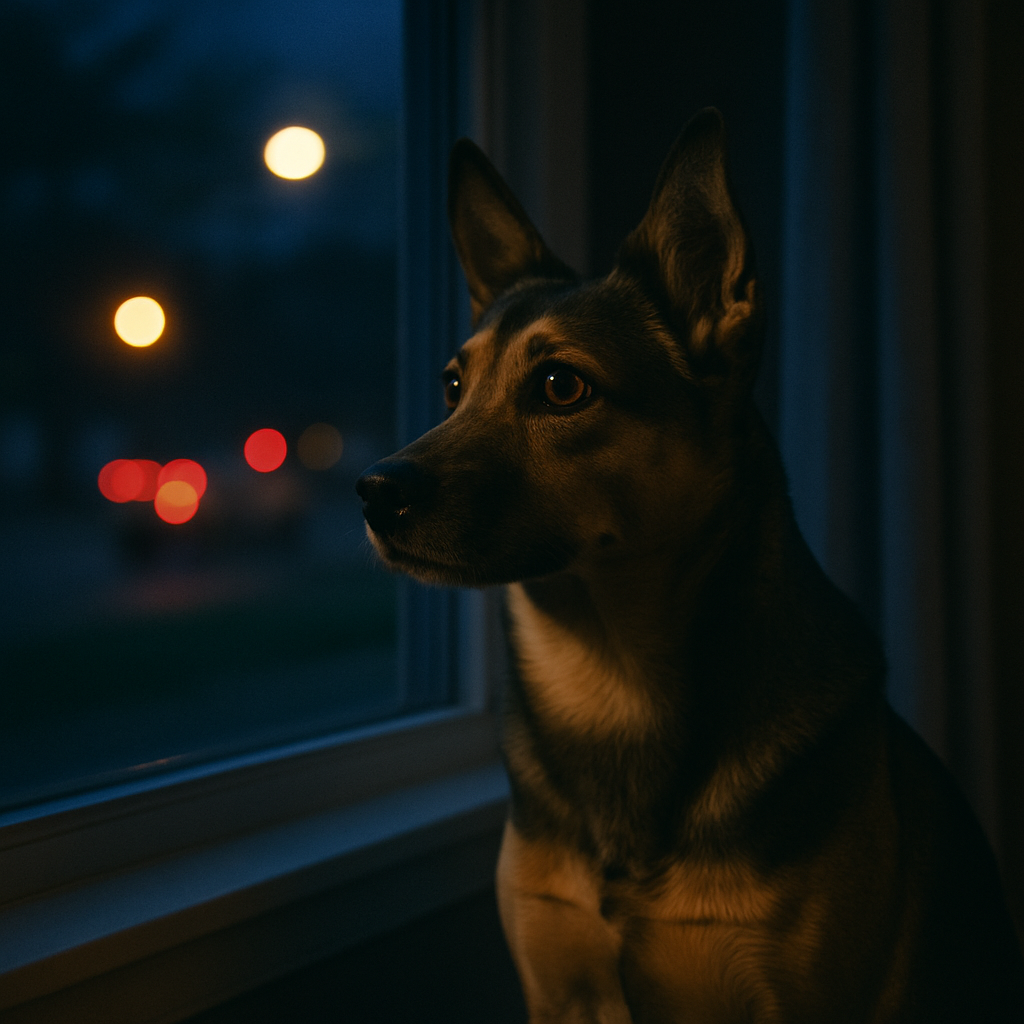Why Is My Dog Barking at Night? 5 Causes & Quieting Strategies
Night barking is frustrating when you want everyone to sleep.
Below are the five most common causes—and calm, proven fixes.

Why Dogs Bark at Night
Dogs bark to communicate alerts, needs, emotions, and habits.
At night, triggers are easier to notice because the home is quiet.
Think cause first, then match the fix to the cause.
Cause 1: Territorial Noises and Wildlife
- What it looks like: sudden bursts at footsteps, doors, cats, raccoons, or cars.
- Why it happens: night amplifies sounds; some dogs are alert-driven.
- Fixes: white noise or a fan, close blinds, move the bed away from windows, and reward quiet.
Cause 2: Anxiety or Separation Stress
- What it looks like: pacing, whining, and repetitive bark cycles.
- Why it happens: changes in routine, new home, or being alone in the dark.
- Fixes: predictable bedtime routine, comfort item with your scent, and gradual alone-time practice.
Cause 3: Boredom and Unmet Needs
- What it looks like: restless energy at night and demand barking.
- Why it happens: daytime under-stimulation leaves energy for midnight.
- Fixes: evening walk, sniffari, or puzzle feeding to meet mental and physical needs.
Cause 4: Inconsistent Routine or Potty Needs
- What it looks like: puppy wake-ups or seniors asking to go out.
- Why it happens: bladders mature slowly; seniors may need extra breaks.
- Fixes: last potty break 30–60 minutes before bed; define a simple lights-out ritual.
Cause 5: Discomfort or Medical Issues
- What it looks like: new restlessness, panting, or sudden vocalization.
- Why it happens: pain, itch, cognitive decline, or urinary issues can disrupt sleep.
- Fixes: vet check for sudden changes; follow treatment and use gentle sleep supports.
Quieting Strategies That Work
- Exercise earlier: aim for afternoon or early evening activity to avoid late-night arousal.
- Wind-down routine: dim lights, short potty, then a calm chew or lick mat.
- Sound masking: white noise or a fan reduces outdoor triggers.
- Safe sleep space: covered crate or cozy bed in a quiet area if your dog finds it calming.
- Reinforce quiet: mark and reward calm seconds; avoid reinforcing attention barks.
Personality-Based Tips
Some dogs alert by nature while others stress when routines slide.
Tailor training to your dog's style for faster, kinder results.
Discover your dog’s style with our 🚀 Free Dog Personality Test.
Then match fixes: more sniff walks for explorers, earlier wind-down for energetic types, and quiet comfort for sensitive dogs.
When to See a Vet or Trainer
- Night barking starts suddenly or escalates over days.
- There are signs of pain, itching, or cognitive changes.
- Anxiety persistently interrupts sleep despite routine changes.
Related reads: Understanding your dog's bark • How to stop howling • Indoor enrichment games
References: AKC: Why Dogs Bark • VCA: Barking Overview • RSPCA: Barking Advice
FAQ
Why is my dog barking at night all of a sudden?
Territorial noises, anxiety, unmet needs,
routine changes, or discomfort commonly trigger night barking.
How do I stop my dog from barking at night?
Meet needs, set a wind-down routine, mask
noises, and reinforce quiet moments rather than scolding.
Should I ignore my dog barking at night?
Ignore attention barking only after needs are
met and health issues are ruled out; still potty puppies.
Do puppies grow out of night barking?
Yes with maturation, consistent routines, and calm
practice; expect progress in weeks, not days.